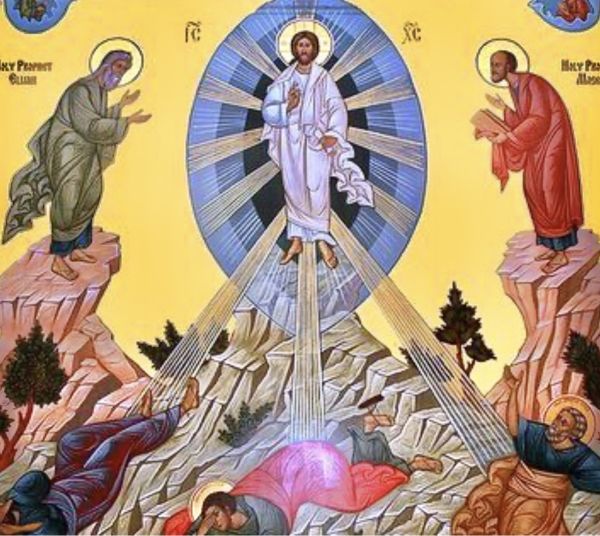On this Sunday of Lent, the Gospel presents the Transfiguration of Jesus on Mount Tabor before Peter, James and John. The disciples, astonished, fall with their faces to the ground in front of so much splendour, while from the cloud that covers them the Voice of the Father calls them to listen to the Son who is the object of his delight.
The Sources recount that "the man of God, remaining all alone and in peace, filled the woods with groans, sprinkled the earth with tears, beat his breast and, as if he had found a more intimate sanctuary, talked with his Lord [...].
There, too, he was heard by the brothers, who were piously observing him, to appeal with cries and groans to the divine Goodness on behalf of sinners; he also cried aloud the Lord's Passion, as if he had it before his eyes.
There, as he prayed at night, he was seen with his hands stretched out in the form of a cross, lifted up from the ground with his whole body and surrounded by a luminous cloud: marvellous light spread around his body, which wonderfully testified to the light shining in his Spirit.
There, moreover, as sure evidence testifies, the hidden mysteries of divine Wisdom were revealed to him, which, however, he did not divulge to the outside world, except to the extent that the charity of Christ compelled him to do so and the usefulness of his neighbour demanded it [...].
When he returned from his prayers, which transformed him almost into another man, he took the greatest care to behave in uniformity with others, lest the wind of applause, because of what he let out, deprive him of the interior reward" (FF 1180 - Major Legend).
Francis guarded his transformation into "Alter Christus" with great discretion, almost living in the seclusion of his heart.
In fact, the same Sources attest:
"From the beginning, when the true love of Christ had already transformed the lover into his own image, he began to conceal and hide the Treasure so carefully that not even his intimates would discover it for a long time.
But divine Providence did not allow it to remain hidden and not reach the eyes of her loved ones [...].
One of his companions once, seeing the stigmata on his feet, said to him: "What is this, good brother?".
"Think of your own business" - he answered him" (FF 719 - Vita Seconda del Celano) with the frankness and simplicity that distinguished him.
"This is my Son, the Chosen One. Listen to him" (Lk 9:35)
Transfiguration of the Lord C (Lk 9:28-36)












